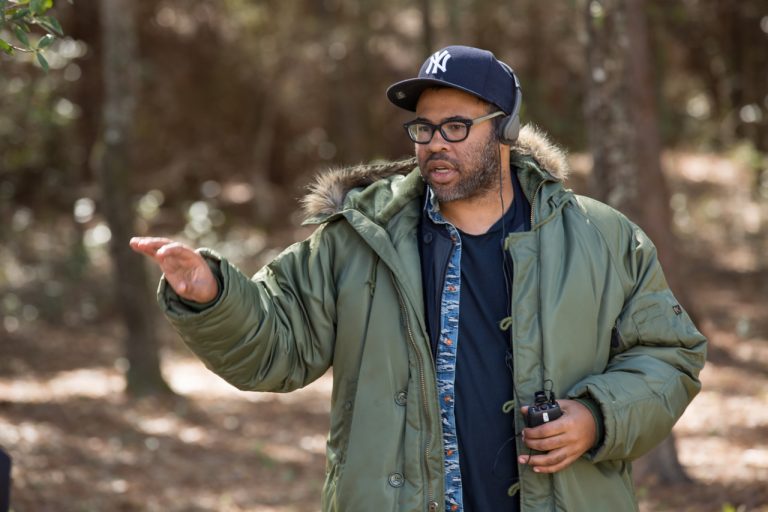
Spencer Wu
Copy Editor
With only a $4.5 million budget and 23 days of filming, box office success “Get Out” amassed four Oscar nominations and one Golden Globe nomination for its writer, director, and producer Jordan Peele. In a highly anticipated and sold-out script-to-screen event, Peele came to UCSB’s Pollock Theater on Tuesday, Feb. 26 to hold a Q&A session with moderator Matt Ryan regarding the cultural impact of his first major motion picture.
Peele first gained recognition when he co-created and co-starred in his hit Comedy Central skit series “Key & Peele.” With this background and the experience he gained from it, he seamlessly transitioned into the movie scene, directing a unique blend of comedy, horror, and mystery all while attacking pertinent issues regarding racism today.
“I have an audience in my head that is my best guess of how this would work. Moving into this horror genre, it’s the same thing,” Peele said. “You have to be conscious of what the audience knows, feels, and thinks is going to happen at every point.”
With a horror thriller like “Get Out,” audience interaction is highly important. Peele first acknowledged the visceral reactions that moviegoers had throughout the film and even the weightiness afterwards.
“[I tried] to sew layers into it that I imagined 20 years into the future somebody would go ‘that movie “Get Out?” It’s got some interesting stuff going on. I’m going to go write something about that,’” Peele said. “It’s fun to take somebody who hasn’t seen the movie and basically watch them watch it. I’m tuned into the audience.”
He then delved deep into casting choices and character development, namely that of African American protagonist Chris, played by Daniel Kaluuya. Peele first reached out to Kaluuya over Skype after seeing him as Bing in “Black Mirror”’s episode “Fifteen Million Merits.” Kaluuya, who is of British descent, was very receptive to the role. He quelled any qualms that Peele initially had of casting someone to accurately portray the African American experience.
“Yo, yo, let me tell you something. This is the fucking movie my friends and I have been asking for forever,” Peele said in his humorous Key & Peele-esque British accent. “Look, black is black. Being black operating in white spaces, it is what it is. I recognize all these moments. The further thing [is that] I’m African. I’m African in Britain. I’m an extra-outsider.”
The director then proceeded to go further down the rabbit hole by detailing his inspiration behind the subtle metaphors throughout the movie that refer to the racism present in this country, namely the infamous Sunken Place.
“I went into this idea of ‘what’s worse than death?’ And of course [it’s] this feeling of being trapped in your own body for eternity and having no agency or voice. And I had always felt like when you’re about to fall asleep and you feel like you’re falling, so you wake up and catch yourself,” Peele said. “I always thought to myself, ‘what if you didn’t catch yourself? What if you didn’t wake up? Where would you fall to?’ And that was sort of bubbling under as the scariest idea.”
Directing a scene with such strong emotional and historical ties, Peele fully understood its critical prevalence today.
“When I got to writing this scene, it came out very instinctively in terms of my worst fears. I felt that it was beautiful and cinematic and it wasn’t until I completed that scene that I really started noticing the parallels to the Prison Industrial Complex and the fact that black men are essentially abducted, tossed away, and neglected at a completely disproportionate rate,” Peele said.
“At that point, I realized the Sunken Place is the symbol for this system that keeps us down. This is a feeling of the voiceless, the feeling of having your power taken away, so I wrote this scene and I just started crying,” Peele said. “Up until this point [it] has been such a fun process, and it was still fun, but its emotion poured out.”
The bigger point that Peele tried to address in all these intricate details and easter eggs throughout “Get Out” is the continual plight of African Americans at the hands of their white counterparts. Peele said it best in this tweet: “The Sunken Place means we’re marginalized. No matter how hard we scream, the system silences us.”










